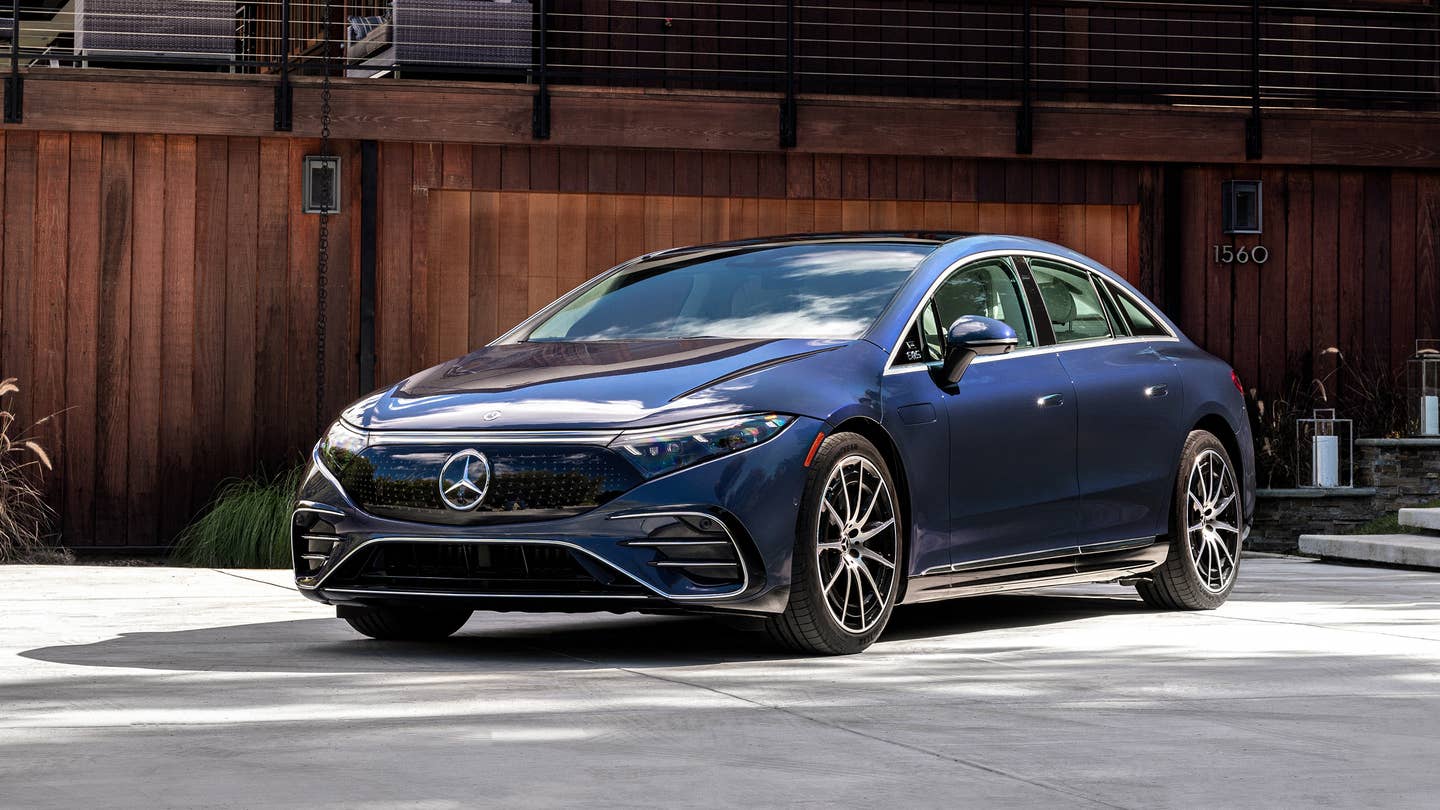Mercedes Dealers Struggling to Sell EVs, Complain EQS Isn’t ‘Aspirational’ Enough
Dealers say the cheaper EQB and EQE models are what buyers want, while the EQS has been oversupplied.

Mercedes-Benz, like so many automotive brands, has ambitions to go all-electric in the coming decades. That begins with the few EVs it offers on its dealer's lots today, yet those very dealers appear to be finding it challenging to move product and get shoppers into its high-end EQ-branded models. What's more, they're starting to complain anonymously to the press about how Mercedes is botching its electrification rollout with cars that just aren't "aspirational" enough. Not great!
The problem is complex, according to personnel from various dealers interviewed by Automotive News, whose identities were withheld due to "fear of retaliation." One representative from a store said that there's been "almost no [lease] support," despite the premium the brand's priciest EVs command. Another said that Mercedes has prioritized keeping the range-topping, $105,000 EQS sedan and SUV well-stocked, at the expense of the relatively affordable EQB and EQE that have been more popular with buyers.
"Our cars need to be 'want' cars," a dealer told Automotive News. "The S-Class has maintained good loyalty because it's aspirational. An EQS is not something that most people aspire to own."
To that, Dimitris Psillakis, the company's U.S. chief, said that supply-side holdups have kept the company from "getting the volume we want when we want it," especially for the lower-priced models. Last week, Mercedes reported third-quarter sales of 10,423 EVs out of 90,011 total cars, and 7,727 of those were represented by the EQB and EQE.
No matter the cause, the current situation hasn't led to a rosy picture for the commercial outlook on Merc's pricier all-electric models. One source interviewed by Auto News estimated that while they had roughly a 50-day supply of internal-combustion engine-powered cars in their inventory, that figure looked more like six months for battery-electrics. Another reported a roughly 20-day supply for gas cars, compared to a 60-to-90-day supply of EVs.
Despite that, one retailer said about 65 percent of cars allocated to their dealership these days wear EQ badges. Some have taken it into their own hands to tack on discounts and promotions to the Silver Arrows' EVs, but that solution's hardly been a tenable one for many franchisees. All that's contributed to the reality that has seen Mercedes' electric models take more than twice as long to turn over compared to those of one of its foremost competitors. According to Edmunds, EQ models typically spend about 82 days on the lot, versus 38 days for BMW's EVs.
Reading between the lines, the conclusion appears to be that the EQS—a sedan our own Peter Holderith not so affectionately compared to a wireless computer mouse—isn't drawing buyers, and could use some help selling itself. If it's any consolation to Mercedes-Benz, it doesn't seem to be alone at the moment.
Got a tip? Send us a note: tips@thedrive.com. Anonymity guaranteed.
